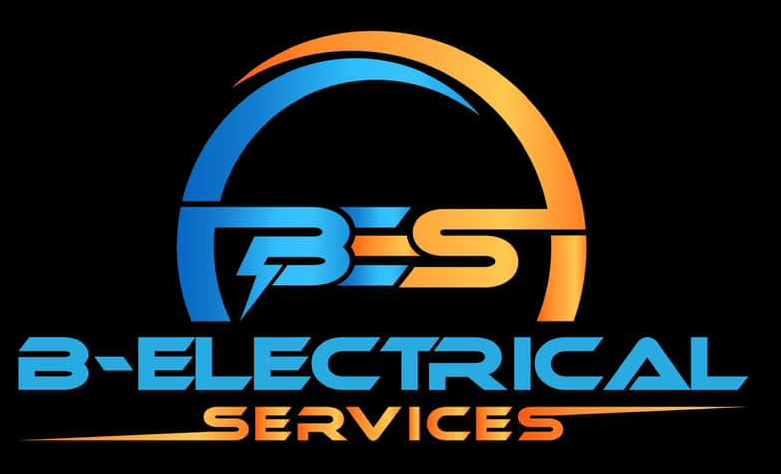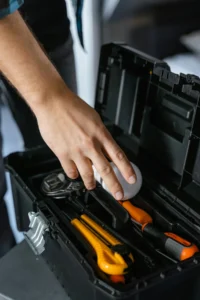How to Become an Electrician –A Simple Guide
B-Electrical - A professional & reliable electrical service
Plenty of Opportunities
It’s a job that’s always in demand and offers plenty of opportunities for those willing to train and work hard.
In this guide, we’ll explain how to become an electrician in the UK, the steps you’ll need to take, and the skills and electrical qualifications required. Whether you’re leaving school or changing careers, this guide will help you get started.
What Does an Electrician Do?
Electricians are responsible for installing, maintaining, and repairing electrical systems.
This includes:
• Domestic and commercial electrical installation
• Wiring homes, businesses, and construction sites
• Testing and inspecting electrical systems
• Replacing fuse boards, sockets, and lighting
• Working on renewable energy systems, alarms, and more
To carry out this kind of work safely and legally, you’ll need to become a qualified electrician through recognised electrical training.
The most common way to become an electrician in the UK is through training courses that lead to industry-recognised qualifications. These courses cover the theory and practical skills needed to carry out electrical installation work.
You can train through a college course, an apprenticeship, or a specialist training provider. Each route offers hands-on learning alongside classroom-based lessons.
Most training begins with a Level 2 qualification and progresses to Level 3.
To become a qualified electrician, you will need to achieve a full Level 3 Diploma in Electrical Installations (Buildings and Structures). This qualification is often offered through City & Guilds, one of the most well-known awarding bodies in the UK.
This diploma covers:
• Electrical science and principles
• Health and safety in the workplace
• Practical electrical installation tasks
• Inspection, testing, and fault finding
Once you have your Level 3 diploma, you’ll have the core skills and knowledge to begin working in the electrical industry under supervision.
Step 3: Complete On-the-Job Experience
While classroom learning is important, nothing beats real-world experience. Many electricians train through apprenticeships, which combine work and study over a few years. If you’re not on an apprenticeship, you’ll still need to gain practical experience before becoming fully qualified.
Working alongside experienced electricians helps you build confidence and learn how to:
• Work safely on site
• Solve electrical problems in real scenarios
• Use tools and testing equipment
• Follow electrical regulations and building codes
This hands-on training is vital to your development and gives you the confidence to carry out jobs on your own in the future.
Step 4: Get Your AM2 Assessment
Before you can register as a fully qualified electrician, you’ll need to pass the AM2 (Achievement Measurement 2) assessment. This is a practical exam that tests everything you’ve learned.
You’ll be assessed on:
• Safe isolation
• Wiring and fault finding
• Testing and inspecting installations
• Working within deadlines and following instructions
Passing the AM2 shows you’re ready to work independently and safely.
Step 5: Join a Competent Person Scheme (Optional)
Once you’re qualified, you may choose to register with a competent person scheme, such as NAPIT or NICEIC. This isn’t mandatory, but it allows you to self-certify certain types of domestic electrical installation work and gives clients extra confidence in your skills.
Other Electrical Qualifications to Consider
As you progress in your career, you can build on your training by taking extra electrical qualifications, such as:
• 18th Edition Wiring Regulations (a must-have for most electricians)
• Inspection and testing certifications
• Courses in solar panel installation or electric vehicle charging
These training courses help you specialise and stay up to date with the latest developments in the electrical industry.
Key Skills Needed to Become an Electrician
To succeed as an electrician, it helps to have:
• Good problem-solving skills
• Attention to detail
• An understanding of maths and science
• Physical fitness and manual dexterity
• A willingness to learn and work hard
You’ll also need to be safety-conscious and able to follow regulations precisely. Many electricians also develop great customer service skills over time.
Is Being an Electrician a Good Career?
Yes – electricians are in demand across the UK. You can work for a company, become self-employed, or even start your own business in the future. The work is varied, often hands-on, and offers the satisfaction of solving real problems for people and businesses.
It’s also a career that offers long-term stability and progression, especially as new technologies and energy systems continue to grow.
Ready to Get Started?
If you’re serious about becoming an electrician, now is the time to explore training courses and begin your journey. Speak to your local college or look for City & Guilds approved providers offering electrical training in your area.
With the right electrical qualifications, experience, and motivation, you can become a trusted qualified electrician and enjoy a successful, rewarding career in the electrical industry.
WHAT ARE CLIENTS SAYING?
Emily Atkins
David
Lee Coull
WHY CHOOSE B-Electrical?
- Reliability and Trust
- Range of Services
- Expertise & Specialisation
- Affordable



